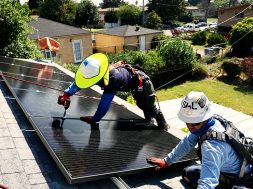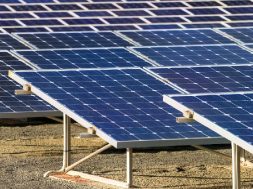
How Solar Energy Is Fuelling Tribal Women’s Dreams of Becoming Entrepreneurs
An organisation is trying to empower women in rural Jharkhand by encouraging them to set up small-scale rice hulling enterprises. The tribal village of Pasanga in the Phori Panchayat area of Jharkhand’s Gumla District is home to 144 households. A representative of thousands of small villages in India, the total paddy yield in the village is around 576 tonnes a year, out of which the farmers keep aside around 190 tonnes for their own consumption. The rest of the rice is sold to middlemen at a throwaway rate of Rs 6 per kg. There’s no other option other than such ‘distress sale’. At least, there wasn’t. Recently, Mlinda Foundation, an organisation working in the field of solar electrification of rural areas, came up with a solution.The organisation provided a group of 5 tribal women with a solar-powered rice hulling machine to start their own rice hulling enterprise.
“These women buy 60% of the paddy that would otherwise be sold off to middlemen from local farmers at the market price. They then themselves hull the paddy locally in electric rice huller machine powered by the mini-grid and sell the rice in the market. This freshly hulled rice fetches them a market price, which is twice the price of paddy. The sale of rice husk also acts as an additional revenue stream for the women, along with hulled rice,” says Sudeshna Mukherjee, deputy country director at Mlinda. Since the rice hulling group in Pasanga started functioning from last September, the average monthly income for each member has gone up to Rs. 6,000 to Rs. 7,000, informs Sudeshna.
Mlinda Foundation has been working in the field of renewable energy since 2005. The organisation that has its global headquarters in Paris started functioning in India in 2011. Headquartered nationally in Kolkata, the organisation is active in the rural areas of West Bengal as well as Jharkhand.Mlinda has so far partnered with the Ministry of New and Renewable Energy (MNRE), The Energy and Resource Institute (TERI), and National Bank for Agriculture and Rural Development (NABARD) on various financially viable, open-source clean-energy projects that aim at leveraging solar power. The organisation innovates and transforms diesel-run machines into machines that run on solar power. So far, the organisation has designed, commissioned and is operating 8 solar PV based solar grids and has financed 17 irrigation pumps, 75 small irrigation pumps and 11 rice hulling machines to people in rural Jharkhand.
In Bengal, the organisation is installing affordable, community-owned solar mini-grids in the Sundarbans and Purulia areas. The organisation also offers loans to the farmers and rural entrepreneurs.“All we want to do is to provide electricity to rural and tribal communities of West Bengal and Jharkhand residing in ecologically fragile areas and conflict zones. We are trying to do that through a system of renewable energy-based pico and mini grids that are paid for by the communities. Till date, Mlinda has commissioned 310 pico and micro grids (ranging from 150 Wp to 8 kWp) with an installed base of 105 kWp,” says Sudeshna. Access to sustainable, reliable and low-cost energy sources can become a game changer in stimulating integrated rural development. Realising this, the organisation is trying to use solar electrification actively to incubate micro-entrepreneurship models at grassroots, with a focus on tribal women.












